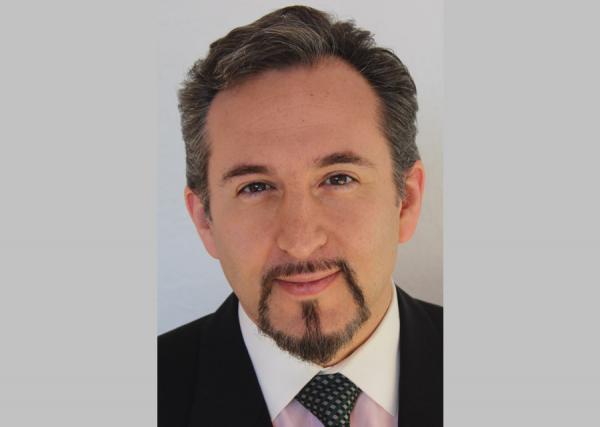Q&A with NEH Public Scholar Andrew K. Sandoval-Strausz

Andrew K. Sandoval-Strausz is the recipient of an NEH Public Scholar grant to produce a book on Latino Landscapes: A Transnational History of Urban America since 1950
A. K. Sandoval-Strausz

Andrew K. Sandoval-Strausz is the recipient of an NEH Public Scholar grant to produce a book on Latino Landscapes: A Transnational History of Urban America since 1950
A. K. Sandoval-Strausz
Name: Andrew K. Sandoval-Strausz
City and State: Albuquerque, New Mexico
Book Title: Latino Landscapes: A Transnational History of Urban America since 1950
Publication date: Late 2017
Publisher: TBA
Agent: Ellen Levine
Amount of Public Scholar grant award: $50,400 (12 months)
- Tell us the first thing you did when you learned you received an NEH Public Scholar grant. I think I raised my hands up in the air, clenched both fists, and shouted “WORLD…DOMINATION!” in joking reference to Richard E. Grant’s villainous character in the underwatched 1991 film “Hudson Hawk.” Then I asked my wife to guess what the heck I was so excited about.
- What’s your writing or academic background? I’m a history professor, and while my training is academic, I have always tried to write for a broader audience. My first book, Hotel: An American History, was published by Yale University Press. My fantastic editor, Chris Rogers, encouraged me to rewrite the initial manuscript in more accessible prose, and sweetened the deal by printing the book in color with more than 140 illustrations. The design team really did make it into a work of art!
- How did you find your book project? I grew up in and around New York City in the worst years of the urban crisis, when things were so bad that many observers thought that big cities were just done for—indeed, that was the real-world inspiration for movies like The Warriors and Fort Apache: The Bronx and Escape from New York. Historians have done some incredible work explaining the origins of the urban crisis, but have only just begun to study what came afterward. And looking around urban America, it seemed clear to me that immigration from Latin America was one of the biggest parts of that story. So I decided to focus my book on how Latin American migrants have transformed their adopted neighborhoods in the U.S. while at the same time rebuilding the hometowns they left.
- What sources are you using for your research? I’m using a lot of oral histories so that I can focus the book on the Latin American immigrants who have done so much to revitalize U.S. cities. These migrantes have such incredible stories that I’m currently working together with Xóchitl Bada of the University of Illinois at Chicago and Bradford Hunt of the Newberry Library to create a publicly-accessible digital archive of interviews with Chicago’s Mexican migrants.
- Why do you want this project to have broad appeal? Immigration is of course a topic that continues to be debated, but I hope that this project shows that scholars can play an important role in helping people understand the present by using lessons from the past.
- What is the biggest challenge of writing a scholarly book for a general audience? To be honest, writing for a general audience is a pleasure in and of itself, because you get to experiment with more evocative and exciting journalistic and novelistic styles. My first chapter begins, “‘The things we did were wrong,’ he explained many years later."
- Do you have a model or a favorite popular scholarly book? I aspire to write top-quality history that’s also a compelling read, like Beryl Satter’s Family Properties, Jefferson Cowie’s Stayin’ Alive, or Neil Foley’s Mexicans in the Making of America.
- How has the Public Scholar grant award made a difference in your project? The most precious resource for any writer is long, unbroken periods of time that allow you to just think and write. And that’s exactly what the Public Scholar grant makes possible.
The NEH Public Scholar program for well-researched books in the humanities for a general audience is open for a third round of applications. Click here to learn more about this grant opportunity and here to download the .pdf with the Public Scholar application guidelines. The application deadline is February 1, 2017. Contact @email with questions.